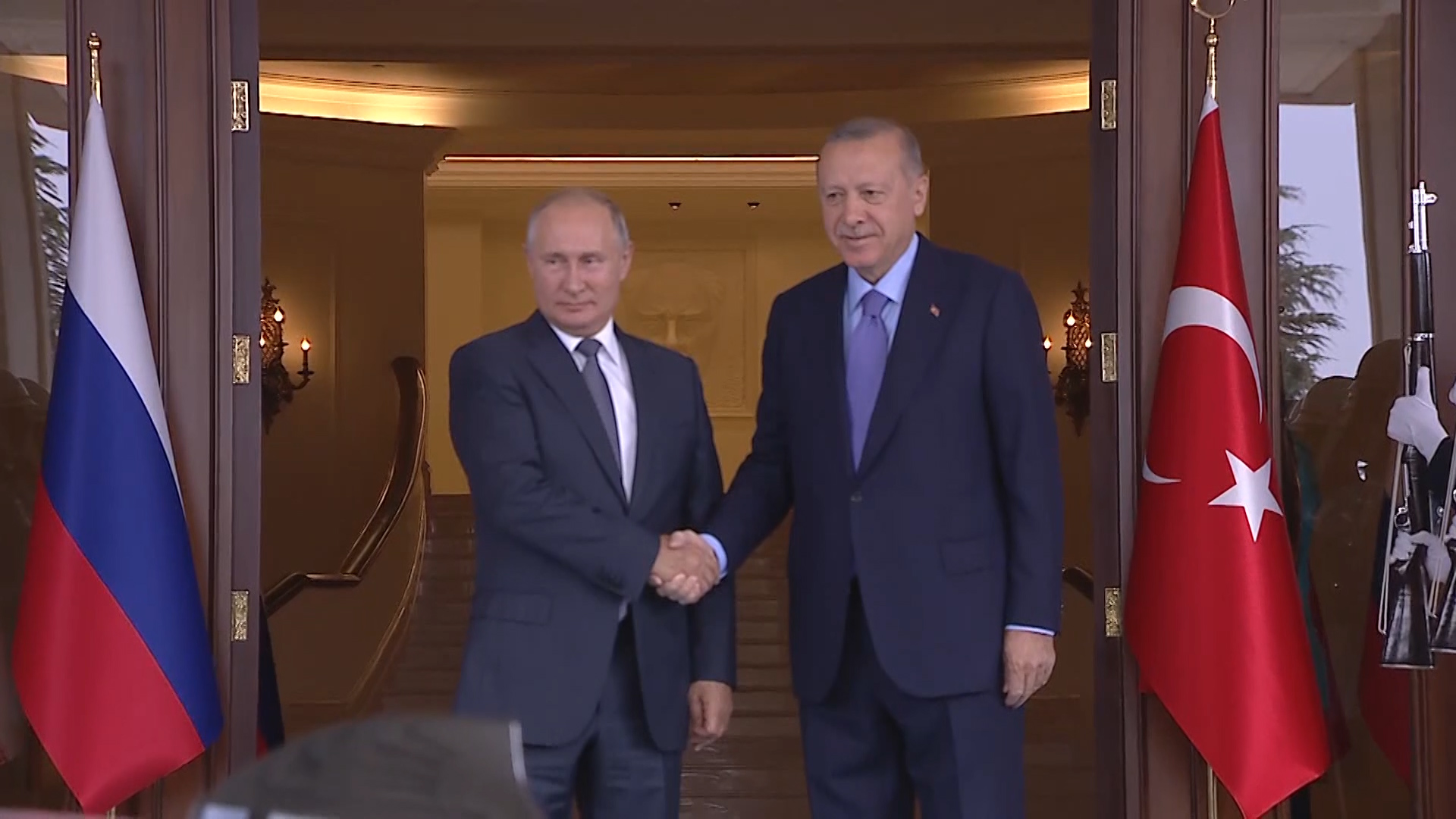Türkiye and Russia in the Age of Strategic Rivalry
In the chaotic and anarchic structure of international relations, alliances between great powers are often fleeting based on changes in power balance. History is rich with examples where temporary cooperation masked deep strategic divides. This pattern is once again visible in the relations between Russia and Türkiye. These two regional powers have overlapping ambitions in highly complex regions such as the Middle East and the South Caucasus.
Over the past ten years (I remember that especially after a Russian jet was downed by Turkish Armed Forces near Syrian border and Russian envoy was killed in Ankara, the relations between these two countries were in crisis in 2015), Russia and Türkiye have maintained a complex and sometimes contradictory relationship. They have sometimes appeared as strategic partners: they jointly launch large-scale regional energy projects or infrastructure projects like the Akkuyu nuclear power plant, or broker deals to manage tensions in war-torn regions, especially in Syria where a lot of actors involved. However, their rivalry has always been seen in subtle way.
The most vivid example of their uneasy partnership was Türkiye’s 2019 purchase of the S-400 air defense system from Russia. It seemed a geopolitical shift that shook NATO, raising serious questions about Türkiye’s alignment with the West. Russia saw an opportunity to drive a wedge between NATO allies, while Türkiye signaled its desire to act independently, rejecting imposed security norms.
Such brief moments of cooperation-like behaviours were offset by deeper competition. In Syria, Libya, and the South Caucasus, Türkiye and Russia found themselves on opposite sides of critical conflicts. For example, Russia propped up the Assad regime while Türkiye backed opposition groups and expanded its military footprint in northern territories in Syira. In Libya, Türkiye’s intervention tilted the balance of power in favor of the UN-recognized Government of National Accord, directly countering Russian-supported forces.
In the 2020 Nagorno-Karabakh war, these regional tensions came to a head. Azerbaijan, supported by Türkiye, reclaimed its territories from Armenian control and provided its territorial integrity. Russia, while playing the mediator and keeping its neutral stance, saw its influence in the South Caucasus challenged. Türkiye emerged as a dominant actor with a military and strategic presence solidified in the region via Azerbaijan. The close bond between Baku and Ankara has reshaped the power dynamics of the post-Soviet space (Shusha declaration was signed with Azerbaijan later on). Namely, Türkiye has started to play a more assertive and influential role in the region.
The Russia-Ukraine war further exposed the fragile nature of Moscow-Ankara ties. While Türkiye maintained diplomatic dialogue with both sides, it sold Bayraktar drones to Ukraine, a move that contributed to Kyiv’s early battlefield successes. Though Türkiye avoided direct confrontation with Russia, its actions signalled a shift toward strategic balancing.
Russia’s waning influence has only become more visible in the course of time. The weakening and over-thrown of the Syrian regime, long supported by Moscow, illustrates Russia’s diminishing capacity to maintain influence amid domestic and military overstretch. Türkiye seized the opportunity, expanded its military zones in Syria and intensified diplomatic overtures across the Arab world, capitalising on Moscow’s partial retreat.
What emerges is a clear pattern: great powers may cooperate, but their strategic goals rarely align for long. When their ambitions intersect, whether in the Black Sea, the South Caucasus, or the Levant, their partnership is tested. For Türkiye and Russia, the past ten years has been a dance of pragmatism and competition, where short-term gains often masked long-term rivalry.
Türkiye, under President Erdoğan, has mastered the art of navigating multipolar uncertainty. Turkish policy-makers work with Russia when useful, but assert itself when necessary. As regional power vacuums grow and U.S. focus continues to pivot globally, Ankara’s role is poised to expand even further.
As I think considering the facts mentioned above the next decade may see Türkiye emerge not as a partner or a pawn, but as a fully independent regional power, shaping outcomes in Eurasia, the Middle East, and beyond. For Russia, the cost of regional overreach, military fatigue, and diplomatic missteps may prove too high to maintain its influence at previous levels.
Ultimately, the illusion of great power harmony is just an illusion. What matters is how states like Türkiye turn moments of rivalry into opportunities to increase their influence.
